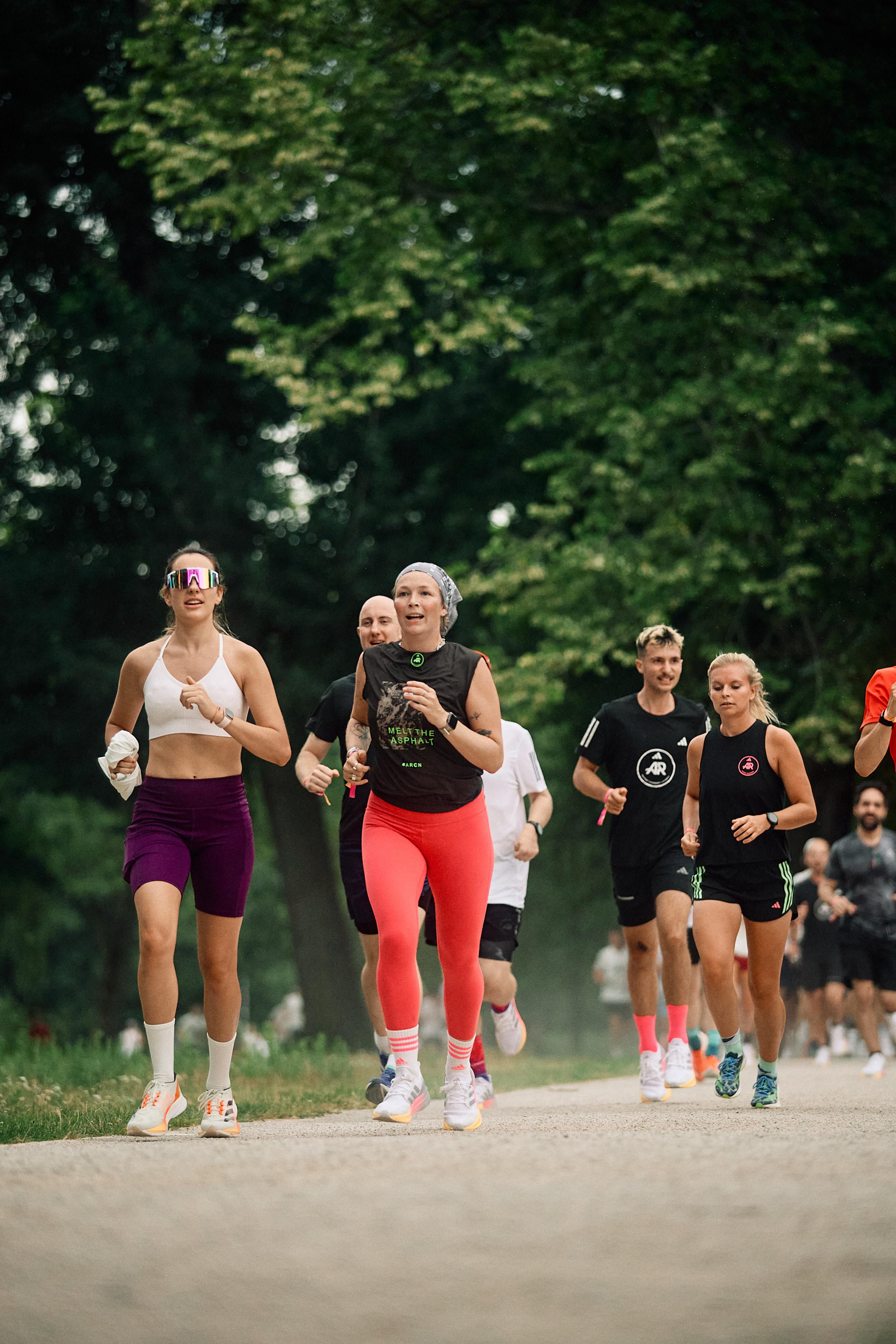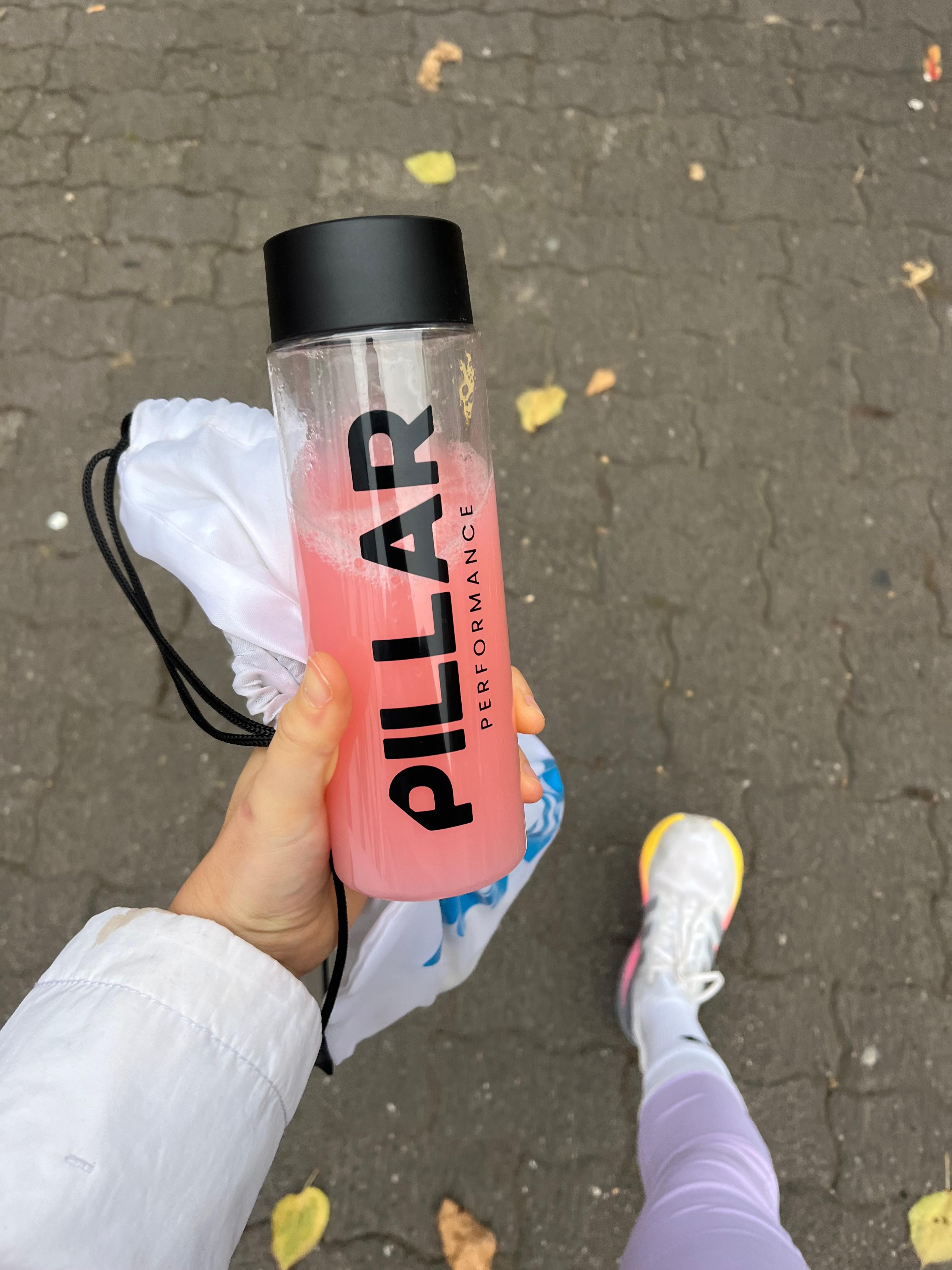Road to Berlin Marathon #2 - No Marathon Plan? No Problem
🏃♀️ No Marathon Training Plan Yet? Here Are 4 Options to Get You Started
So, you've signed up for Berlin Marathon, but you still don't have a training plan? Don’t stress — you're definitely not alone. The good news is: you don’t need to figure it all out on your own. Here are four awesome options to explore depending on your style, budget. Plus, our very own Mariona shares her top 3 personal tips for success.
1. Train with a Run Club 🏃♂️🫶
Run clubs are more than just social meet-ups — many offer professionally designed training programs that cater to all levels. For example, Adidas Runners is a global community that provides structured workouts, including:
- Recovery Runs for active rest
- Tempo Sessions to build speed endurance
- Interval Workouts to push your limits
- Long Runs to get those marathon legs in shape
The best part? Their sessions are completely free and include expert coaches, pacers, and a welcoming community that keeps you accountable. If you're lucky enough to be in a city with an active Adidas Runners chapter (like Berlin), this is a no-brainer.
📌 Pro tip: Many other run clubs also offer performance-focused workouts, strength classes, nutrition workshops, and post-run stretching. Check out our website for more
2. Use a Free or Paid Training Plan Online 💻📅
There’s many resources online that offer free marathon training plans for every level:
- Marathon Handboook (free)
- Training Peaks (paid)
- Chat GPT: Example Prompt: "Create a 16-week marathon training plan for a beginner runner who currently runs [X km] per week. The target race date is [September 26th]. I want to aim for a pace of [06:00/km]. The plan should include [4 runs] per week: a long run, a tempo run, an interval session, and an easy run. Each week, the long run should increase by [2-4] km, and the total weekly mileage should gradually increase to around [50-60 km]. Please provide a structured schedule with specific distance and intensity suggestions for each workout."
📌 Pro tip: Print the plan and stick it on your fridge — instant motivation!
3. Download an App Like Runna 📱🔥
If you love data, customization, and real-time feedback, training apps are your best friend. You can easily get personalized marathon training plans based on your fitness level, race date, and goals — and it syncs directly with your smartwatch or Strava.
Top 3 Apps
- Runna (two weeks free)
- AI endurance
- HumanGo
You'll get:
- Weekly breakdowns with pace guidance
- Scheduled rest and strength training days
- Reminders, progress tracking, and audio cues
4. Work with a Running Coach and Nutritionist 👟📈
If you’re chasing a PR, juggling injuries or a busy schedule, hiring a running coach might be worth the investment. A coach can tailor every single run to your fitness, goals, and real-time progress — and adjust based on how you're feeling week to week. Besides, a coach can also help you with the strength and recovery planning which is extremely important for runners, and nutrition
Many run coaches now offer virtual services too, so you don’t even need to be in the same city.
💁♀️ Tips from the Running FOMO team
Hey community, Mariona here!
If I had to start training for the marathon again, those would be my 3 tips:
Mix up your runs and don’t panic if it’s not perfect
What worked for me last year was to combine different types of runs. I used to run with Load on Mondays and Optimistic Runners on Saturdays (easy runs) and with Adidas Runners on Sundays (long runs in pace groups). I barely did intervals — honestly, I don’t love them — and that’s okay, I still finished! You don’t need to crush every type of session to succeed. The key is to stay consistent and keep showing up. Find what motivates you and stick with it.

Cross-Train to Build Endurance Without Overtraining:
Running every day isn't necessary or ideal for everyone. Cross-training can be a great way to build aerobic fitness while giving your joints a break. Zone 2 cycling, for example, offers similar benefits to Zone 2 running in terms of aerobic development and endurance gains.
So go ahead and jump on the bike, take a swim, or try a low-impact HIIT class. It all adds up.

Fuel Your Training. Nutrition Matters More Than You Think
When the long runs start hitting 20+ kilometers, your body needs proper fuel. Running on an empty stomach might be possible, but it’s not wise, especially when you’re logging marathon distances.
Make sure your diet includes:
- Carbs to fuel your workouts
- Protein for muscle recovery
- Healthy fats and Omega-3s to support overall performance
And don’t overlook supplements that support recovery and endurance. I personally use:
- Magnesium for recovery and sleep
- Creatine to support muscle strength and training performance
- Electrolytes to stay hydrated during long or hot runs
These aren't magic — your legs still do the work — but they can give you a helpful boost. I love the clean formulas from Pillar Performance (MARIONA for 15% off) and Protein Works (MARYWAVE for 10% off). Make sure you check our Partners section for more exclusive offers

🎯 Final Thoughts
No matter where you are in your marathon journey, there’s a training plan that matches your vibe. Whether you thrive in a community setting, prefer DIY structure, or need personalized guidance, the most important thing is to just start with a plan that keeps you consistent, injury-free, and confident on race day.
🏅 Because getting to the start line is just as important as crossing the finish.
Did you join our newsletter already?
Get the latest running news and event updates directly to your inbox.
